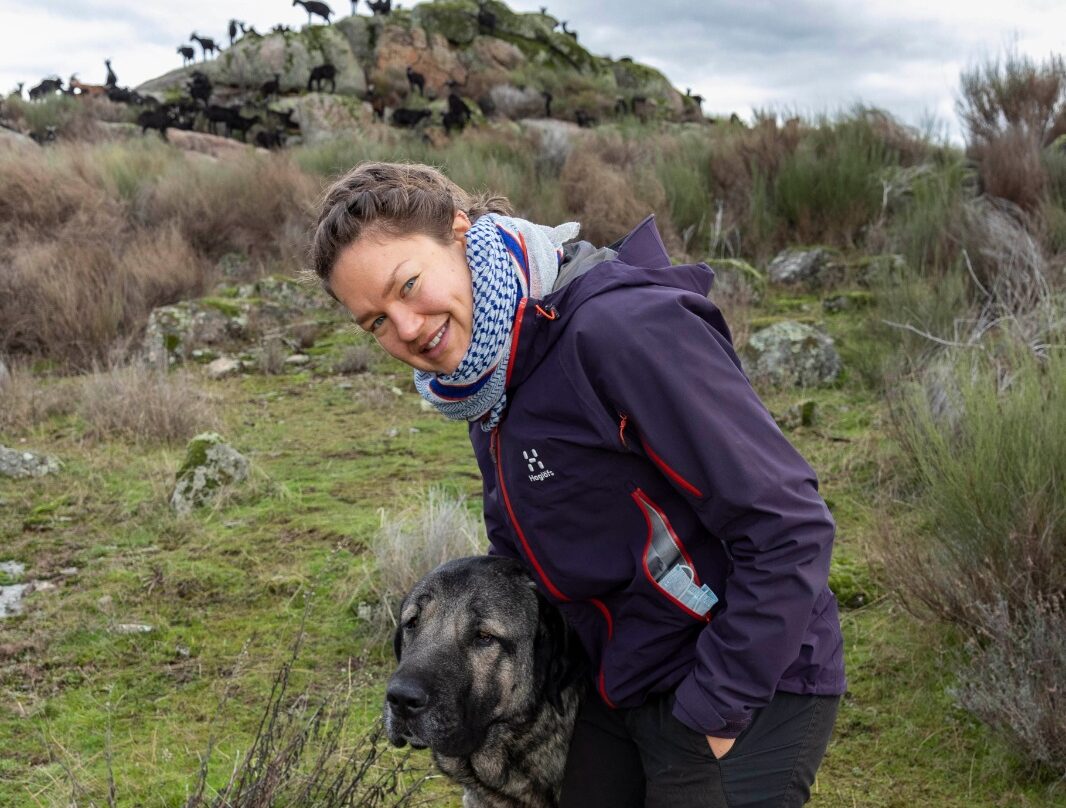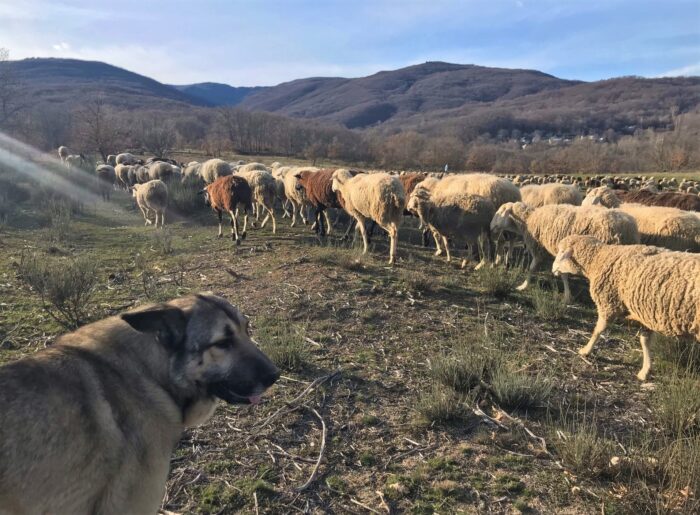PGR IAA Funding - Human/Wolf Co-existence

Former PhD Researcher in the School of Earth and Environment Hanna Pettersson secured Impact Acceleration Account (IAA) funding to conduct a research dissemination trip to Spain to expand and share the findings of her human-wolf coexistence study.
An opportunity for ethical, engaged research
Hanna’s PhD supervisor, Claire Quinn, introduced her to the IAA funding. ‘I’d been looking for a way to return to the study communities to get their input on my results and explore the effects of a new National Wolf Hunting Ban in Spain,’ says Hanna.
‘Sharing the progress and results of a qualitative research project, like mine, with the people involved is extremely important,’ she adds. ‘Yet it’s difficult to find the time and resources, so we researchers don’t do it as often as we should. The IAA funding provided a fantastic opportunity to conduct reciprocal research.’
Understanding human-wolf coexistence
Hanna’s research project centred on human-wolf interactions in Spain. ‘Across Europe, large carnivores are returning to places they’ve not inhabited for many years, if ever before,’ she explains. ‘This can be very difficult for people living in the countryside. We wanted to understand how we could support communities to adapt so both humans and animals can coexist – and flourish.’
‘To learn more about people’s experiences of sharing spaces with these creatures and how it has impacted their lives, I spoke with groups and individuals to understand what was needed to enable safe and successful coexistence,’ continues Hanna. ‘That included anything from asking conservation managers questions to herding sheep alongside shepherds to fully relate to their experiences. It’s complex, and spending time with the locals illustrated that the context is completely different for each village. That’s why returning to share my findings with each community face-to-face was so important.’

‘My research was not only interdisciplinary, but transdisciplinary,’ Hanna adds. ‘I worked with local communities to generate and exchange information, and with natural scientists who could tell me how the wolves were moving between communities. These scientists were co-authors on my research publications and heavily involved in the workshop initiative.’
First-hand connection with case study sites
As soon as Hanna received her IAA funds, she returned to her case study sites in Spain: one where wolves have always been present, another where wolves have recently returned, and finally a location where it’s likely wolves will make a new home. This time, she spent three weeks moving between the locations to present and discuss her findings with the communities.
‘The funding allowed me to make these journeys between sites, and spend enough time in each location to speak to the people who live there,’ she adds. ‘That included taking part in a conflict transformation workshop and presenting my research findings in an open session at each community.’
The wider impact of IAA funding
As well as allowing her travel to, and within, Spain, Hanna could continue her degree around her research project thanks to the IAA funding. ‘I was able to defer my PhD for a month, giving me the chance to disseminate my results without delaying my thesis deadline,’ she says. ‘Naturally, PhD time is precious, and without the funding I wouldn’t have been able to take a month away and return to Spain.’
Hanna has now completed her PhD in the School of Earth and Environment at the University of Leeds, yet her wolf conservation project in Spain will continue. ‘I became a permanent member of the conflict initiative project following the workshop, which will give me the opportunity to share my research findings every year,’ she explains. ‘The membership will help maintain engagement with stakeholders in Spain to understand new developments and build new projects - and was only made possible by the IAA funding.’
